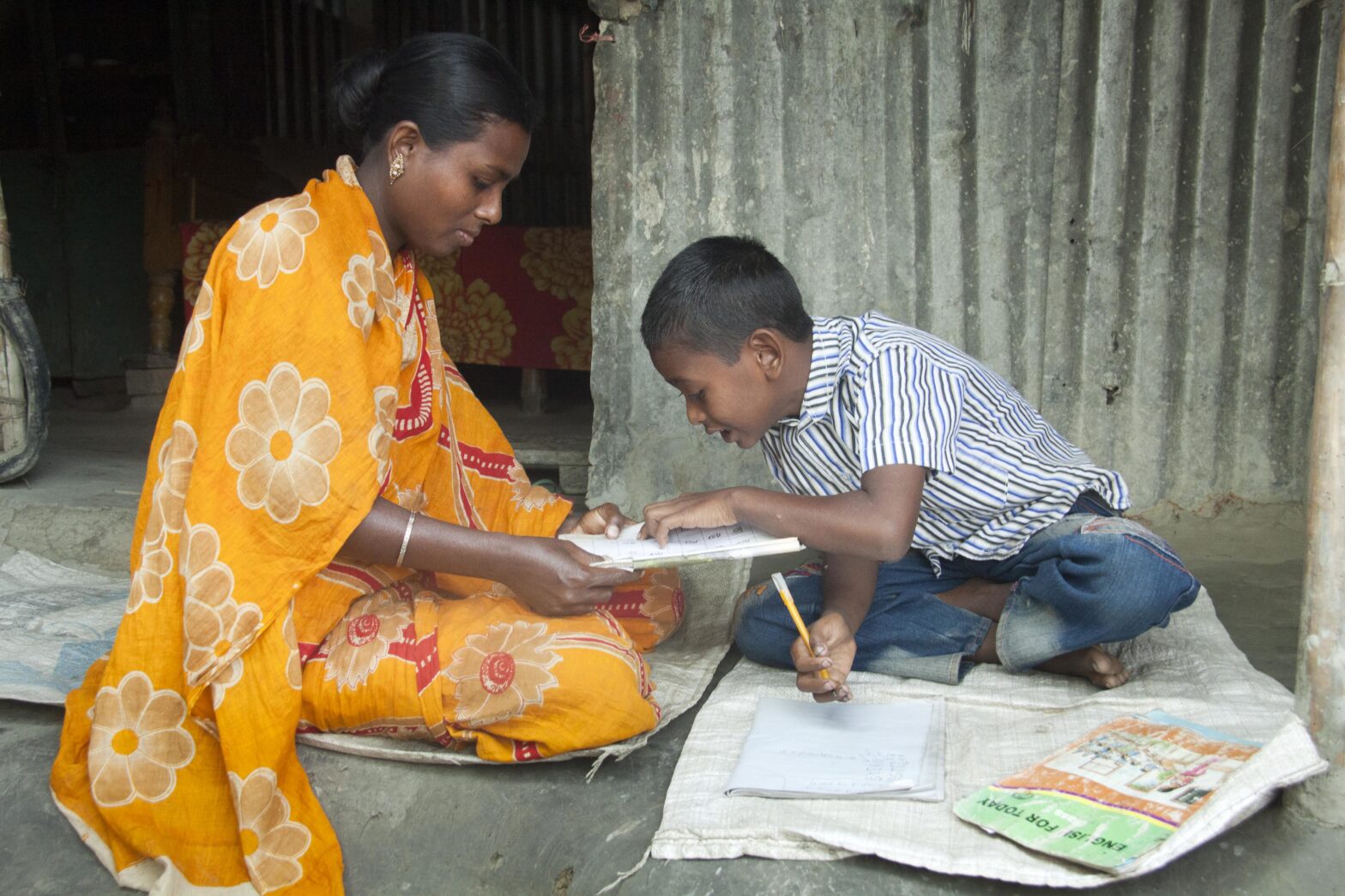“If you ask a homemaker what she does, she will invariably say ‘I don’t do anything’,” says Shaheen Anam, Executive Director of the Manusher Jonno Foundation (MJF), a Bangladeshi civil society organization that works on security and rights for women and girls, among other issues. “We want to change that narrative to redefine what we mean by ‘work’ to include the work women do in their homes.”
But she says “it only counts if it’s counted,” and Bangladesh had no national official data on women’s unpaid care and domestic work – until recently.
Through the Women Count programme, UN Women supported the Bangladesh Bureau of Statistics (BBS) to design and roll out the country’s first-ever Time-Use Survey (TUS) from January until April 2021. This involved specialized training on data collection and entry for more than 100 enumerators, supervisors, data editors, coders and other BBS staff.
“We now have more people trained, so in the future we can generate more gender-specific data more efficiently,” says Mashud Alam, Director of the Demography and Health Wing of the BBS.
The TUS was fielded among an estimated 24,000 respondents in 8,000 households across 64 districts. UN Women Bangladesh has also continued to support BBS in analysing the data and compiling the final report.
“It’s a unique exercise being done for the first time here,” explains UN Women Bangladesh Programme Analyst Md. Shohel Rana. “And as soon as we have the data finalized, there is high-level commitment from Parliament to … develop policies and programmes.”
A satellite account
The Parliamentary Standing Committee for the Ministry of Planning requested the creation of a satellite account based on TUS data to measure the contribution of women’s unpaid work to the economy.
Satellite accounts are supplementary statistics focusing on a particular aspect of the economy. While their use is increasing, few countries have any on unpaid care and domestic work.
MJF’s Anam says the satellite account will be a key step towards formal recognition. “Women may not take their product to the market, so it stays out of national statistics, but it is work and it contributes to the economy. And the State should recognize that.” The satellite account has also been highly demanded by civil society groups who have been advocating for it for years.
Alam says BBS aim to complete the satellite account in 2022, after the final TUS report. He says the data that will also establish a baseline and enable Bangladesh to monitor progress on Sustainable Development Goal 5.4.1, on unpaid care and domestic work, for the first time.
He says knowing how women and men spend their time in a 24-hour period will also help policymakers evaluate programmes to reduce burdens on women, such as childcare policies.
Shaping national policies, plans and programmes
According to Rana, UN Women initiated discussion on the need to develop a national unpaid care work programme and is now working with the Ministry of Women and Children’s Affairs (MOWCA) and other ministries to make it happen.
The Parliament of Bangladesh passed a Child Daycare Centre Bill in June 2021, which focuses on establishing more facilities. UN Women is reviewing it to align with its proposed national unpaid care work programme.
UN Women is also supporting MOWCA to update the 2011 National Women Development Policy’s Action Plan to include priorities related to women’s unpaid work, based on the TUS findings, a commitment announced by MoWCA at the Generation Equality Forum in Paris in July 2021.
UN Women also supported MOWCA to prepare the Gender Strategy for the country’s 8th Five-Year Plan. It now has a dedicated chapter on gender equality and its development results framework includes 15 gender-specific indicators with a specific indicator on unpaid care work for the first time.
Disseminating the findings
While the COVID-19 pandemic has slowed progress, preliminary results are already emerging, and Alam says a final report is expected by June 2022.
A policy advocacy strategy has also been discussed and a UN Women communications officer will work with BBS to produce communication materials on the key findings. These will also be disseminated on the BBS website and through a seminar for experts, relevant officials, development partners, civil society organizations, researchers and media.
Anam says the TUS will provide the nationally representative hard evidence they’ve been waiting for. She even envisions the data serving MJF’s advocacy against domestic violence. In 2010, she says a BBS survey on domestic violence led MJF to hypothesize that if women’s status could be raised and if they were more valued, then perhaps violence could be reduced.
She adds that MJF is keen to support dissemination, because data can fuel advocacy – and with it, behavioural change.
“Just giving the data is not enough,” says Anam. “That data has to be used and conveyed in a way that makes a connection between what women do and their status in the family. We work very closely with women and men and want to do good dissemination of the results.”
